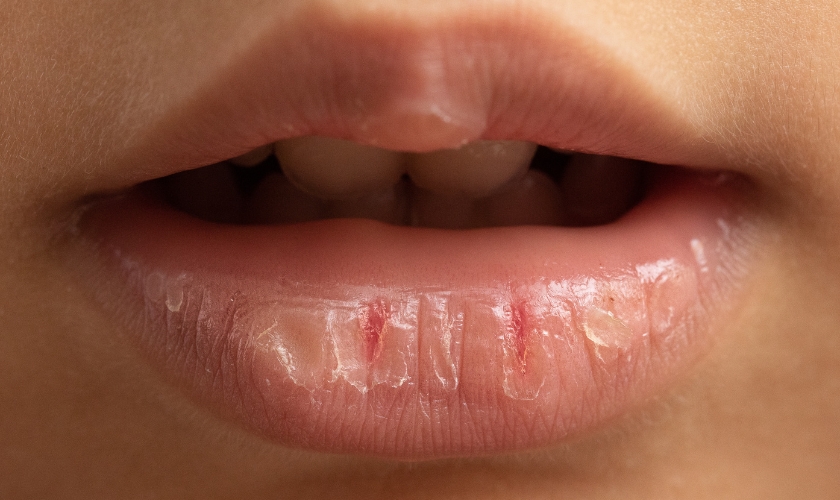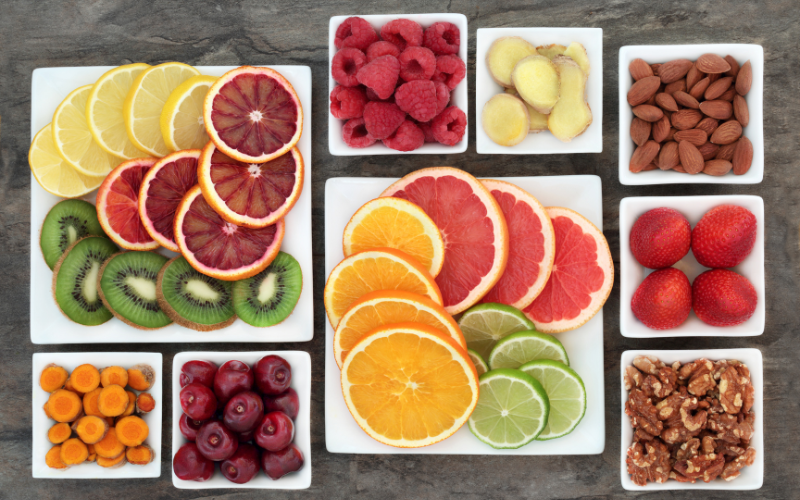Same Day Emergency Appointments Available!
Top Foods to Soothe Dry Mouth Symptoms
Union, NJ
A dry mouth can make daily life uncomfortable, but certain foods can help ease the symptoms and promote natural moisture in your mouth. Whether it’s a lack of saliva due to medication, dehydration, or other factors, your diet can play a significant role in providing dry mouth relief. Let’s explore the best foods that can naturally help keep your mouth hydrated and refreshed.
Stay Hydrated with Water-Rich Foods
Fruits and vegetables with high water content can offer much-needed moisture. Watermelon, cucumbers, oranges, and celery are excellent choices. These foods not only help to hydrate the mouth but also encourage saliva production. Eating fruits like apples and pears stimulates chewing, which increases saliva flow. This is essential for maintaining oral health and reducing the discomfort associated with dry mouth.
Opt for Foods Rich in Natural Oils
Certain foods contain natural oils that coat the mouth and help retain moisture. Avocados, nuts, and seeds like flaxseeds and chia seeds are rich in healthy fats that can alleviate dry mouth symptoms. Incorporating these into your meals not only keeps your mouth feeling more comfortable but also provides essential nutrients that support overall health.
Chewing Sugar-Free Gum or Candies
Chewing sugar-free gum or sucking on sugar-free candies can significantly boost saliva production. Look for options containing xylitol, a sugar substitute known to increase saliva flow and reduce the risk of cavities. The act of chewing or sucking helps to trigger the salivary glands, offering quick dry mouth relief. However, avoid candies or gum with added sugars, as they can contribute to tooth decay, which is a bigger risk when saliva levels are low.
Pick Protein-Rich Foods
Foods high in lean protein, such as chicken, turkey, and fish, are excellent choices for people dealing with dry mouth. These foods are easy to chew and swallow, and they don’t stick to your teeth like starchy or sugary foods. Soft proteins like eggs and tofu are also great options, as they glide through your mouth smoothly without exacerbating dryness.
Dairy Products for Mouth Comfort
Dairy products such as milk, yogurt, and soft cheeses can provide soothing relief from dry mouth. These foods help to coat the mouth with a layer of moisture while providing essential nutrients like calcium and protein. Additionally, dairy is less likely to stick to teeth compared to carbohydrate-rich foods, making it a good choice for those suffering from dry mouth.
Avoid Acidic and Spicy Foods
While it’s essential to include foods that hydrate and moisturize your mouth, it’s equally important to avoid foods that can make your symptoms worse. Acidic foods such as tomatoes, citrus fruits, and spicy foods can irritate a dry mouth, causing more discomfort. Instead, opt for milder foods that won’t irritate your mouth’s delicate tissues.
Herbal Teas for Hydration
While plain water is the best choice for hydration, certain herbal teas can also provide relief from dry mouth. Chamomile and ginger teas are gentle on the mouth and can soothe irritation. Avoid caffeinated teas, as caffeine can worsen dehydration and reduce saliva production. A warm cup of herbal tea can be a comforting way to boost hydration and ease dry mouth symptoms.
Opt for Soft, Moist Foods
Soft, moist foods are much easier to consume when dealing with dry mouth. Soups, stews, and broths are excellent choices because they provide moisture and are gentle on the mouth. Foods like mashed potatoes, oatmeal, and smoothies can also be beneficial. These options help keep your mouth comfortable while still allowing you to enjoy a nutritious diet.
Hydrating Snacks
For quick relief, hydrating snacks like frozen grapes or melon balls can be an easy and enjoyable way to keep your mouth feeling refreshed. These fruits provide hydration and are simple to prepare. The cool temperature can also offer a soothing effect, especially when your mouth feels particularly dry.
Include Foods Rich in Antioxidants
Foods rich in antioxidants, such as berries, spinach, and green leafy vegetables, can help promote overall oral health and ease discomfort. Antioxidants support the body’s natural healing processes and reduce inflammation, which is essential when your mouth feels dry. Consuming these foods regularly can help combat the symptoms of dry mouth over time.
Be Mindful of Carbohydrates and Sugary Snacks
While it’s tempting to reach for snacks like chips, crackers, or sweets, they can make your dry mouth symptoms worse. These foods tend to stick to your teeth and are harder to chew, requiring more saliva for digestion. If you’re craving carbohydrates, try softer options like whole grain pasta, rice, or cooked vegetables that won’t strain your mouth.
When to Seek Professional Help
While certain foods can help alleviate dry mouth, persistent symptoms may require medical intervention. If you experience chronic dry mouth despite making dietary changes, it’s essential to consult with a healthcare provider or dentist to rule out underlying conditions. Medications, autoimmune disorders, and other health issues could be contributing factors, and a Union dentist can help guide you toward proper treatment options.
Related Articles
New Patients & Emergency Appointments Welcome!

